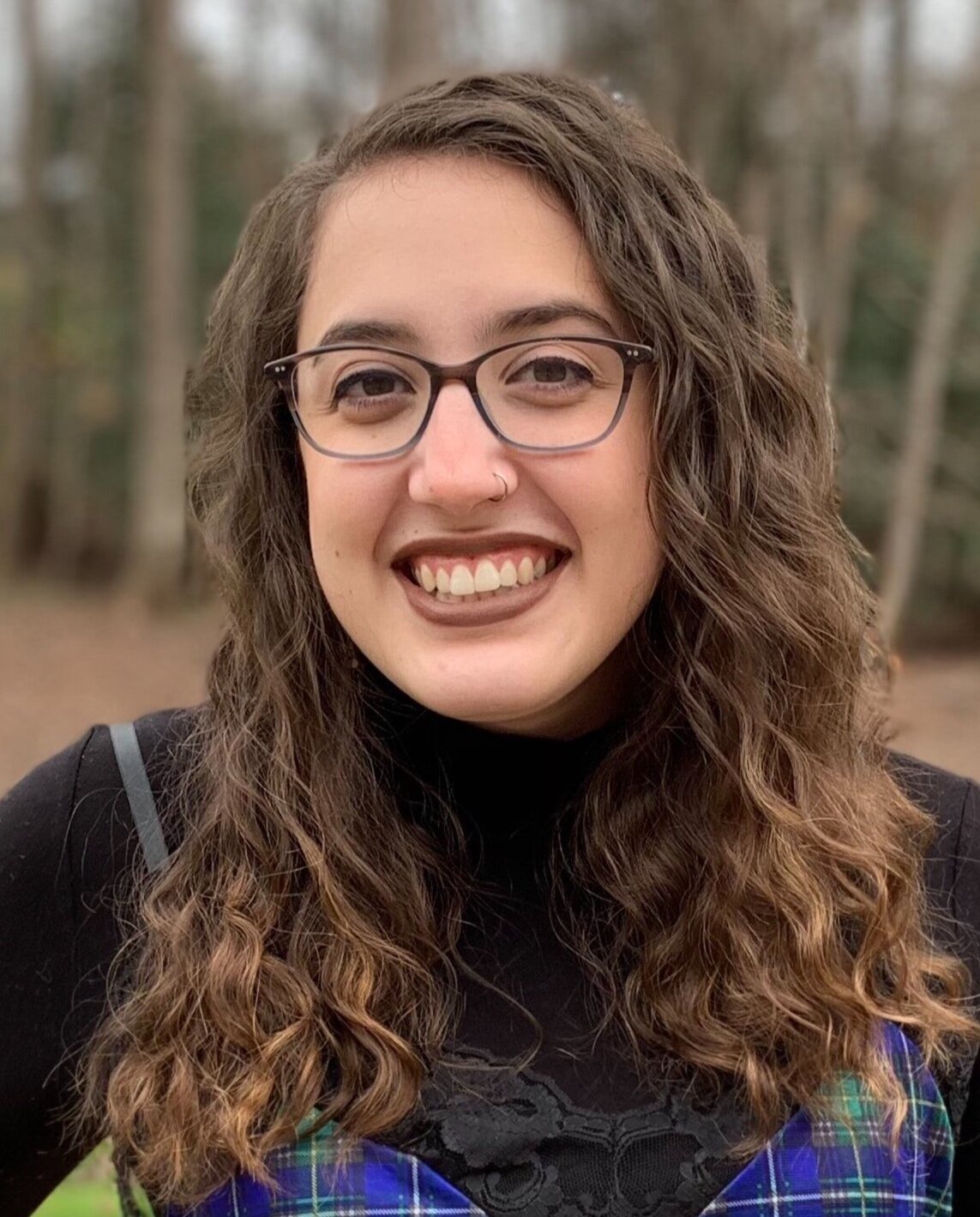Dr. Kristen Lindquist spoke to Dr. Alka Patel about how your body contributes to your emotions. Listen here.
Dr. Holly Shablack accepts an Asst Professor position at Washington and Lee University!
Congrats to lab graduate, Dr. Holly Shablack, who accepted a tenure track Assistant Professor position at Washington and Lee University! Dr. Shablack is currently a Visiting Assistant Professor at Oberlin College and will start at Washington and Lee in summer, 2022.
Dr. Shablack and Dr. Lindquist, Spring 2020
Kristen Lindquist named fellow of the Association for Psychological Science
Fellow status is awarded to APS members who have made sustained outstanding contributions to the science of psychology in the areas of research, teaching, service, and/or application. Read more here.
Kristen Lindquist speaks about the science of emotion
Kristen Lindquist spoke about changing theories of emotion in an article out in Aeon magazine that asked “What if emotions are not universal and hardwired but exquisite acts of meaning-making specific to context and culture?”
Mallory Feldman defends her M.A. thesis
Congrats to graduate student Mallory Feldman, who successfully defended her M.A. thesis entitled Interoceptive ability moderates the effect of physiological reactivity on social judgment!
Mallory Feldman and Kristen Lindquist after Mallory defends her MA thesis
Intern Oscar Lasserra presents his work on amygdala responsivity to dimensions of threat
Summer intern, Oscar Lassera, presented his research at the Summer Undergraduate Pipeline (SUP) Research Symposium. Oscar was supported by the SMART program, which provides STEM research opportunities to students from underrepresented backgrounds and/or to UNC transfer students. Oscar worked with graduate student Joseph Leshin to analyze fMRI data from our NSF-Funded Advancing a Situated Neuroscience of Emotion project. He found that across both sadness and fear, amygdala activity was best predicted by dimensions of threat acuteness and ambiguity. We’ll be sharing the preprint on our Publications page!
Oscar Lassera presents his analyses on the role of appraisals on amygdala activation
Congrats to Dr. Joshua Jackson
Congrats to Dr. Joshua Jackson, who is leaving the lab to join the Northwestern Kellogg School of Management as a postdoctoral fellow. The CASL and the Deepest Beliefs Lab will miss you, Dr. Jackson!
Kristen Lindquist, Joshua Jackson, Nava Caluori, and Kurt Gray celebrate Josh’s graduation from UNC
The CASL welcomes new project coordinators Courtney Medina and Maria Sobrino!
Welcome to Courtney and Maria who are joining us as project coordinators on our joint DSNLab project examining longitudinal changes in social affective processing, peer influence susceptibility, and substance use in adolescence! They are joining us from UNC and the University of Florida, respectively. Welcome to the team, Courtney and Maria!
Dr. Kristen Lindquist edits special issue on language and emotion
Dr. Kristen Lindquist edited a special issue on language and emotion, just out in Affective Science. The issue covers topics from computational linguistics, the effects of bilingualism and acculturation on emotion/affect, the roles of language in emotion development, emotion perception, emotion regulation, and the neural representation of emotion. Read the introduction to the special issue by Dr. Lindquist here, an empirical report on the role of language as a form of context in emotion perception led by former PhD student, Dr. Cameron Doyle here, and a theoretical review on the neural intersection of language and emotion by Drs. Ajay Satpute and Kristen Lindquist here.
Dr. Jennifer MacCormack to start as an Assistant Professor at the University of Virginia
Congrats to lab graduate, Dr. Jennifer MacCormack, who accepted an Assistant Professor position in the Department of Psychology at the University of Virginia! Dr. MacCormack will start her position in Fall, 2022. Dr. MacCormack is currently a postdoctoral fellow in the Department of Psychiatry at the University of Pittsburgh. Follow Dr. MacCormack’s on-going work here.









